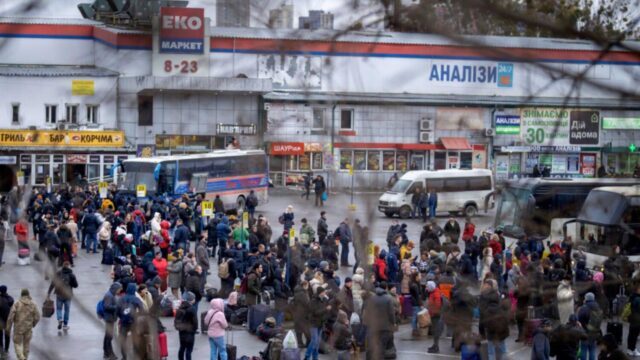As the crisis between Russia and Ukraine deepens, experts believe that the tensions could fuel instability in the Middle East.
In an article published by China Daily, Yesar al Maleki, an energy expert and adviser at the think tank Iraq Energy Institute stated that rising commodity prices and inflation were already a cause of concern and the current tensions are adding a risk premium to prices.
“This may eventually be reflected in retail prices, household spending and outright lead to a possible increase in poverty,” said al Maleki.
Another expert is of the opinion that though the tensions might create opportunities for Middle Eastern countries they will also create a lot of problems
“We have a case of inflation, when we have a case of shock to commodities, we have a rise in instability, in problems, in crime, in terrorism and so on,” Moamen Gouda, associate professor of Middle East Economics at the Graduate School of International and Area Studies at Hankuk University of Foreign Studies in South Korea stressed.
According to the 2021 Near East and North Africa Regional Overview of Food Security and Nutrition report, which came out in November, hunger in the Arab region witnessed a 91 per cent increase since 2000, affecting 141 million people.
It attributed the increase to protracted crises, social unrest, and exposure to multiple shocks and stresses like conflicts, poverty, inequality, climate change, scarce natural resources and the economic repercussions associated with the Covid-19 pandemic.

Gouda also said countries that depend on oil suffer major problems because “oil prices are always varying across time”.
Oil prices hovered to almost $100 a barrel on Feb 24. Ministers from the Organisation of the Petroleum Exporting Countries including allies led by Russia, are set to meet on March 2 to decide whether to increase output by 400,000 barrels per day in April.
IEI’s al Maleki said if restrictions were to cover Russian oil trade, Middle Eastern countries may need to “fill the gap”. But he said OPEC – which is made up of 13 countries – is finding it harder to produce more oil as “they have almost maxed their oil production capacities”.
The exceptions, al Maleki noted, are Saudi Arabia and the UAE which have been growing their spare capacity.
“Years of lacking investment in the oil and gas sector since the 2014 to 2016 oil price plunge and during the pandemic mean they were not able to maintain some wellhead production or expand upstream activities,” said al Maleki.
“OPEC+ will have to discuss these issues and whether they want to increase the production ceiling of countries with higher spare capacity soon. The meeting on Wednesday will also be a chance to see how the cartel members will react with and gauge Russia’s stance on the oil market,” he added.



